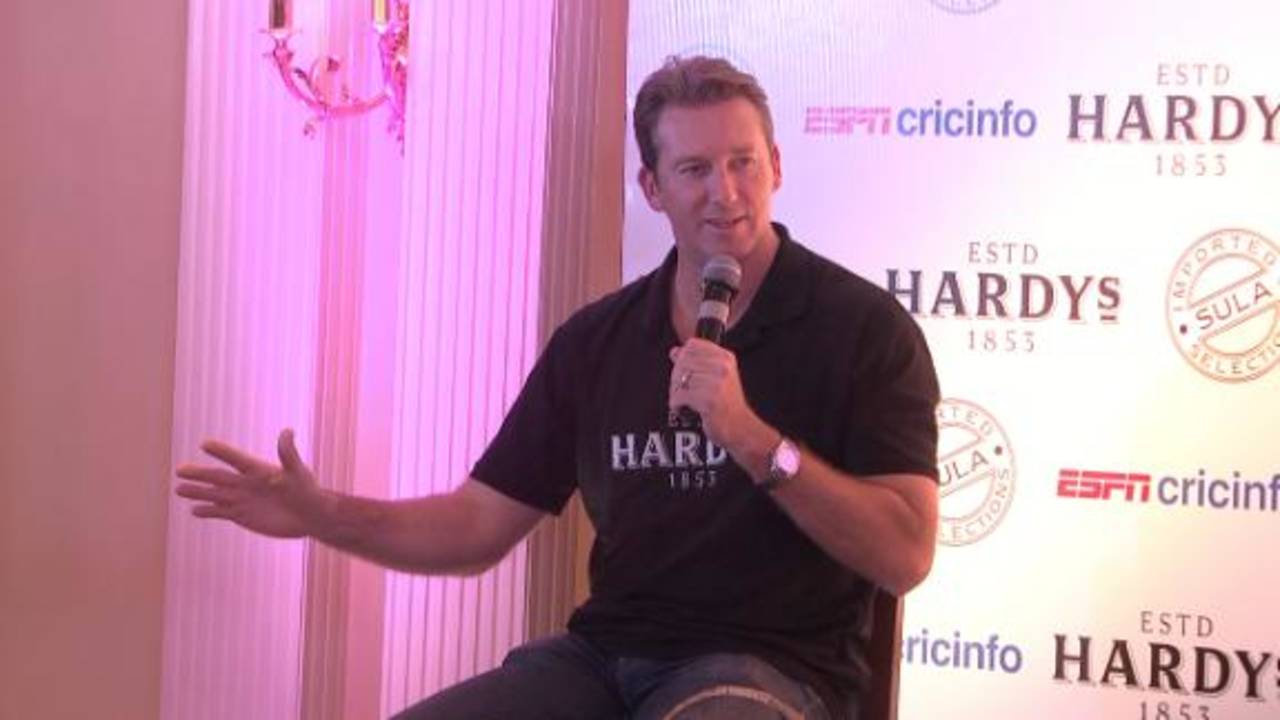India lucky to have bowlers like Umesh, Aaron - McGrath
Former Australia fast bowler Glenn McGrath has said that India are lucky to have quicks like Umesh Yadav and Varun Aaron, with the ability to bowl in the range of 150kph despite conditions that did not offer much support for fast bowlers
ESPNcricinfo staff
05-Jun-2015
Former Australia fast bowler Glenn McGrath has said that India are lucky to have quicks like Umesh Yadav and Varun Aaron with the ability to bowl in the range of 150kph despite conditions that did not offer much support for fast bowlers.
"To be a fast bowler in India is probably as tough as it gets. The wickets are not conducive to fast bowling," McGrath said at an event hosted by ESPNcricinfo in association with Hardys, of which he is a brand ambassador. "The harder you bowl into the wicket, the slower it comes off sometimes. To be a quality fast bowler, you have to be able to adapt to different conditions around the world. To grow up in Australia, it's fine. You get the pace, you get the bounce, it carries through nicely.
"I think when the Indian team tours Australia, the fast bowlers must love the quicker wickets but here in India, it is tough. There's no doubt about that. You've got to find different ways to take wickets and I think the MRF Pace Foundation was set up - Dennis Lillee with Ravi Mammen back about 28 years ago - to find that express Indian bowler. India are pretty lucky at the moment - in Umesh Yadav and Varun Aaron, they've got two bowlers who bowl up around that 150kph mark, which is unusual. (Mohammed) Shami had a great World Cup and he can bowl quite well, too. So there are a few going around."
The Indian pace trio of Umesh, Aaron and Shami had also earned praise from former West Indies fast bowler Andy Roberts, who said that Umesh was India's first "genuine fast bowler".
McGrath said that his stint as director of the MRF Pace Foundation had helped him understand the technical aspects of fast bowling better, making it easier for him to train young quicks at the foundation. McGrath, who took over as director of the foundation from Dennis Lillee in 2012, said he had initially been hesitant about the role, but had taken it up as an opportunity to give something back to the game. He said the lessons he had learnt on the job would have helped him in his international career.
"When Dennis asked me, my first thought was, 'No I don't want to coach', because when I retired, I said I never wanted to coach, I never wanted to commentate. I am now doing both of those and enjoying both of those. The more I thought about it, I had been out of the game for five-six years and I thought it was now time to give something back. I went over and did a bit of work with Dennis, watched the way he went about it. My involvement with the foundation over the last two-and-a-half years is something that I have really enjoyed but I have also learnt myself.
"What I learnt about fast bowling and the technical side of things, I wish I knew when I was playing. I could have fixed my action up a bit, probably been a little better. So now I feel I can teach a young person how to bowl, how to fix someone's action if things aren't going right. I feel very lucky that I am still learning. You can never know enough. You should always look to improve yourself and I have definitely done that. Hopefully, a bit of my experience, the mental side of the game, the routines, the game plans, the thinking, the thought-processes I can pass that on to the next generation of players coming through."
